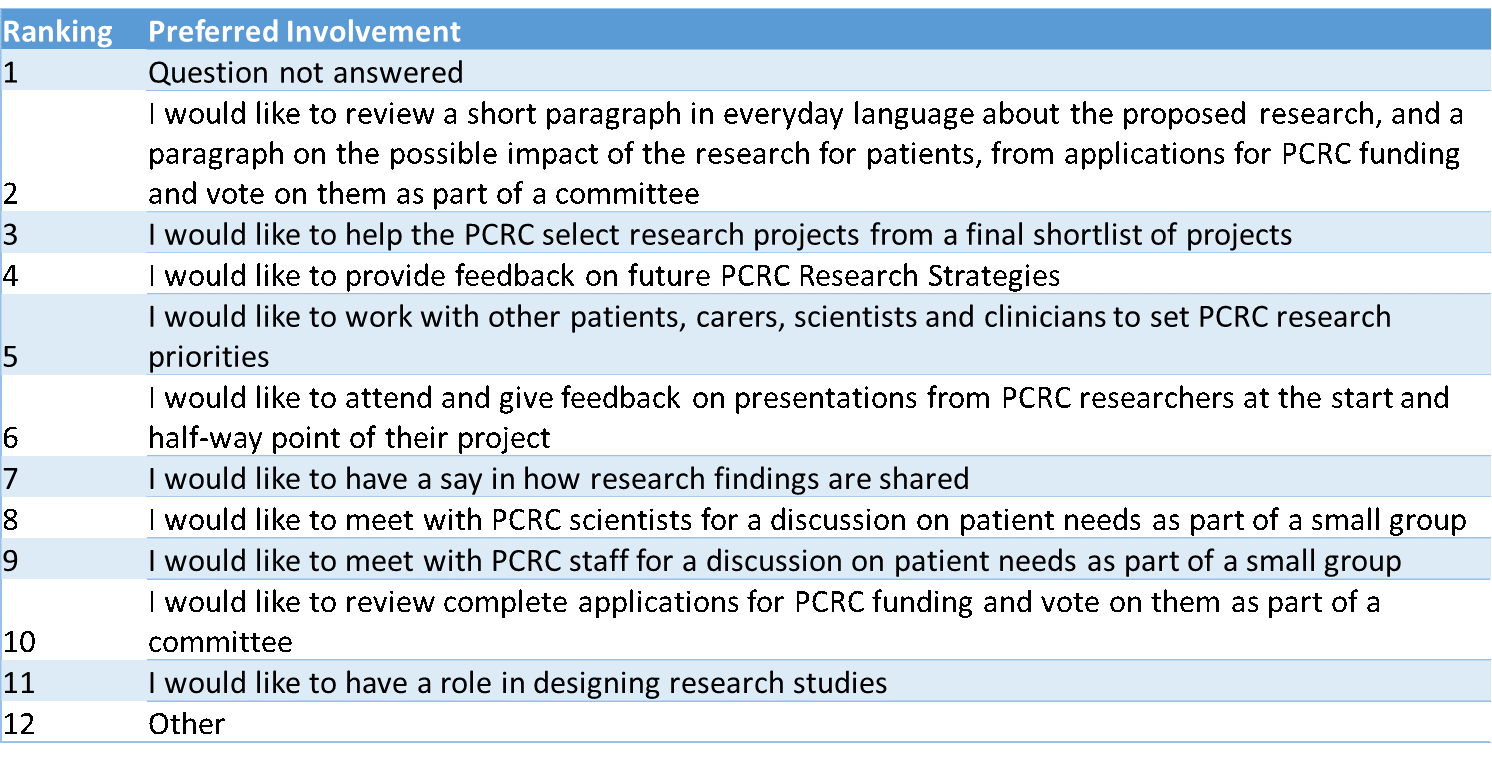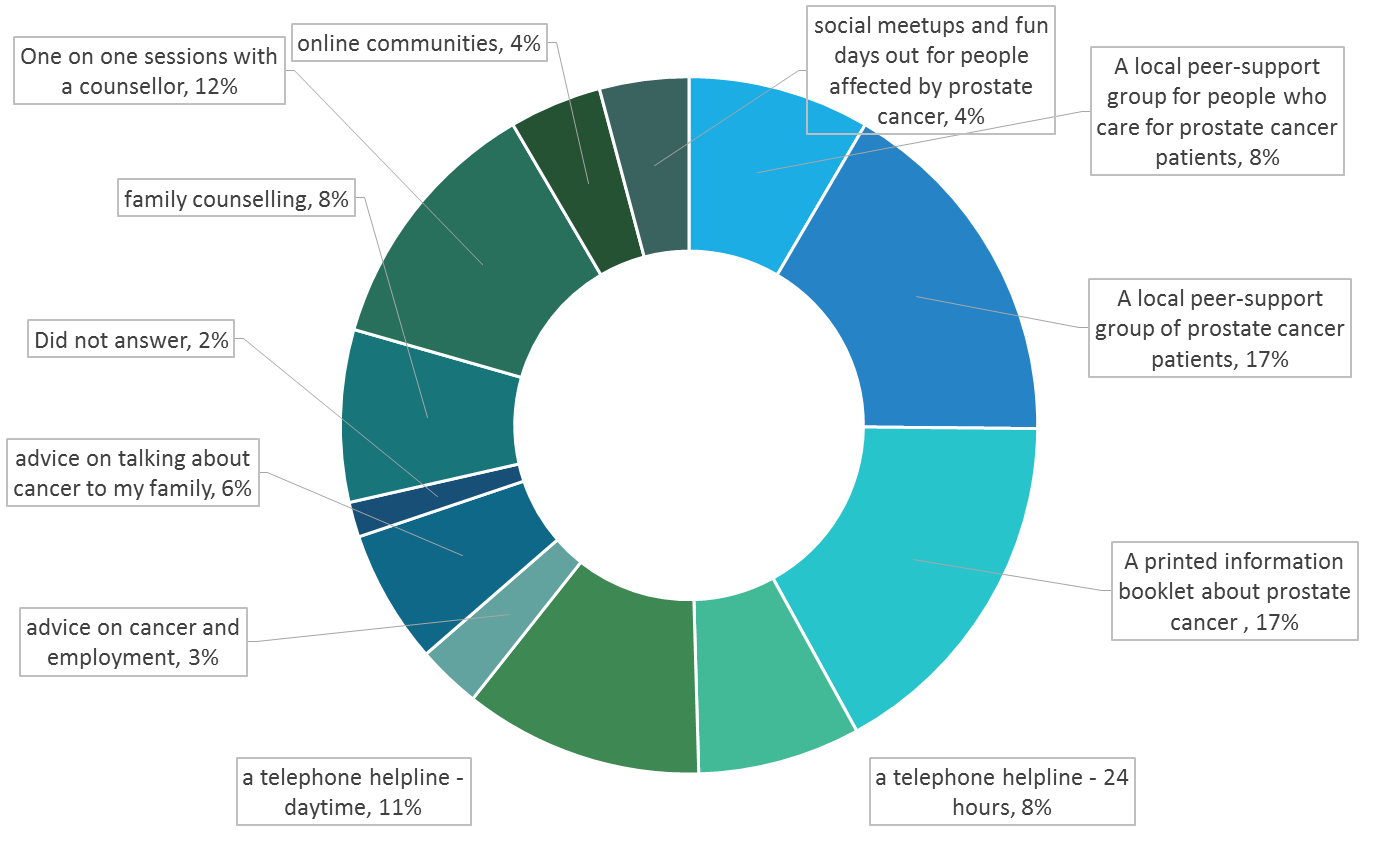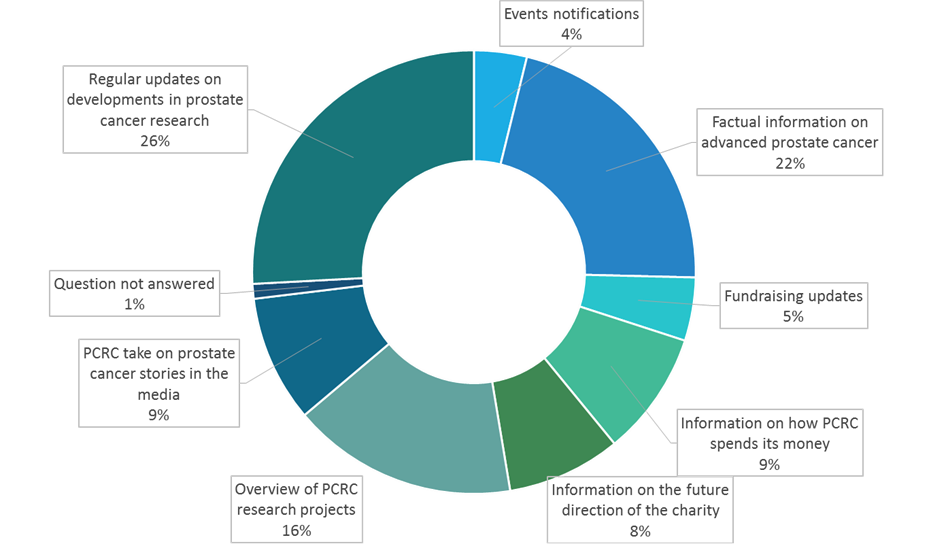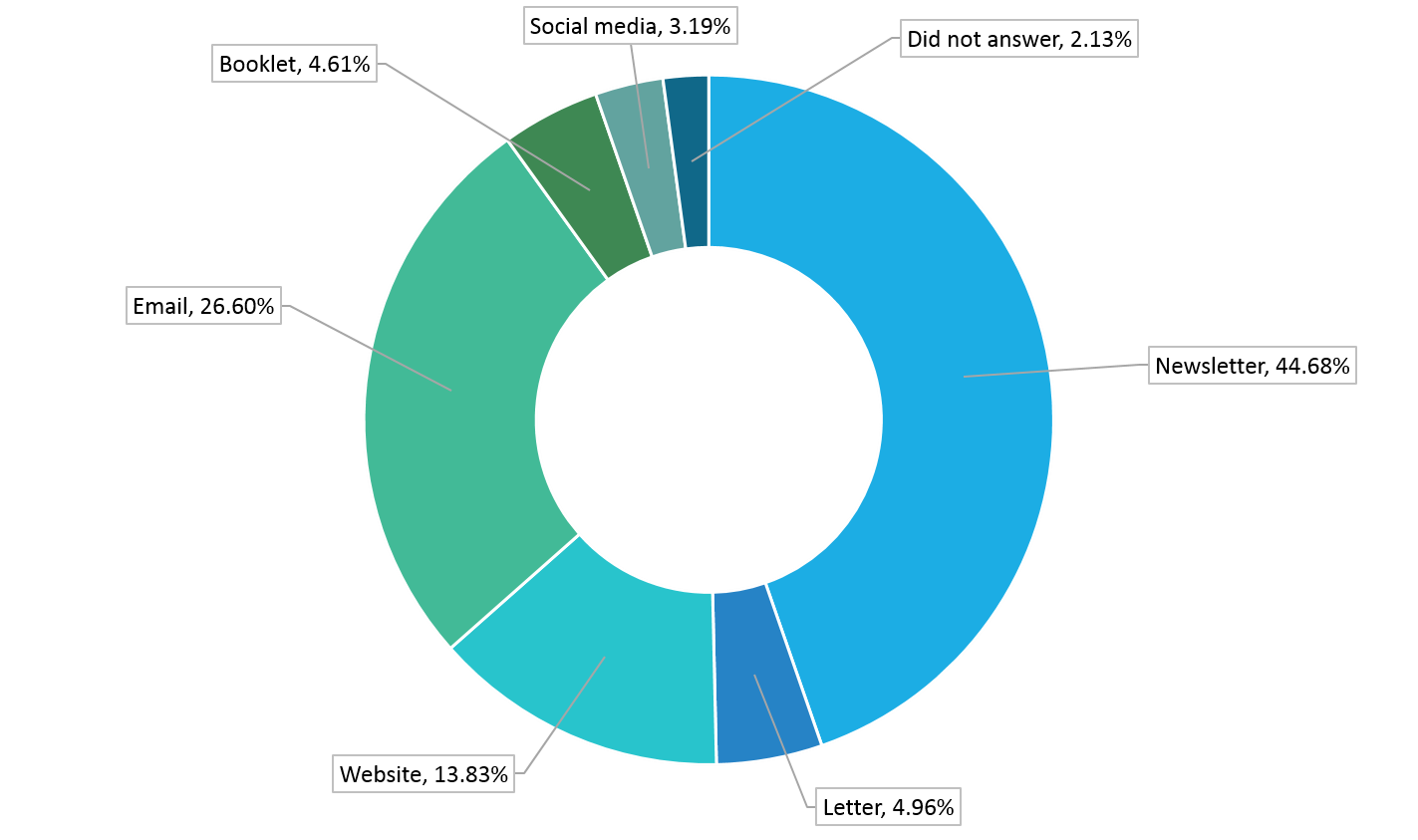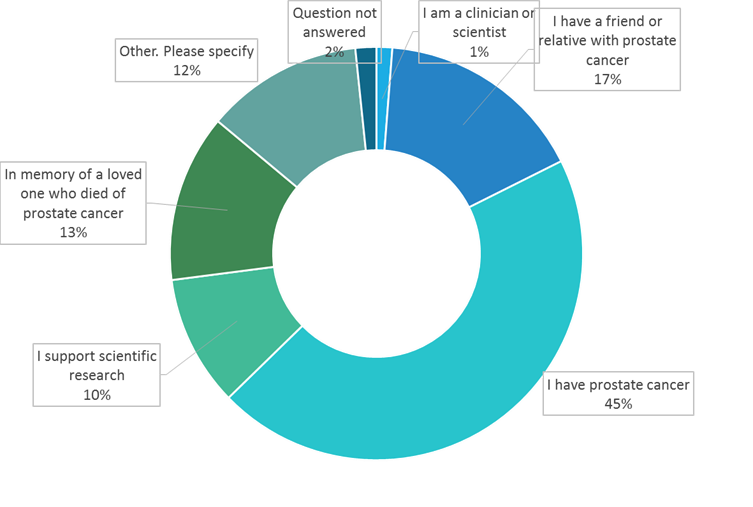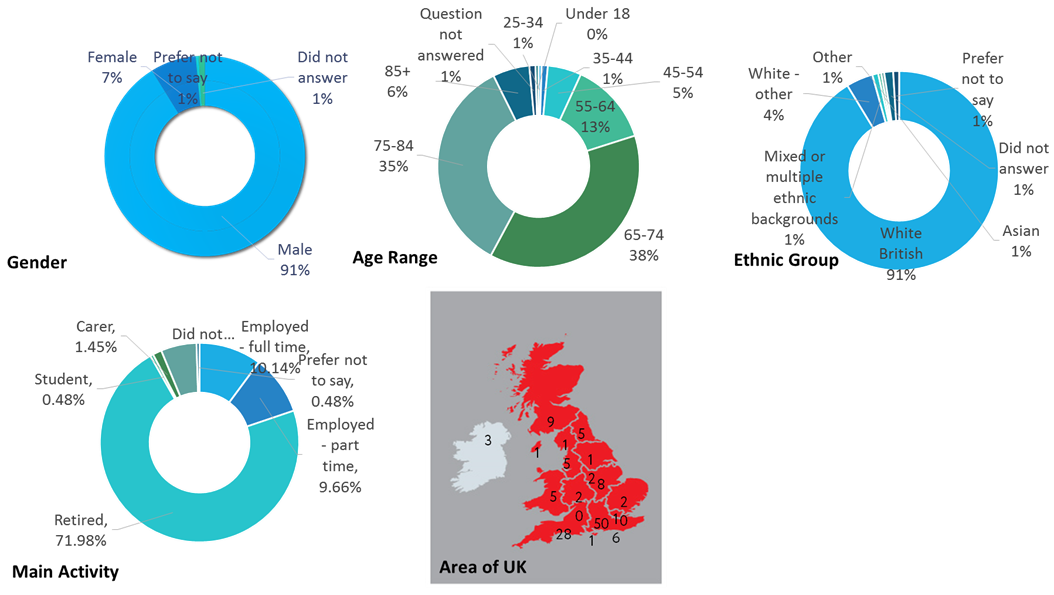What is PPI? Why do a survey?
PPI stands for Patient and Public Involvement. It means research that it done “with” or “by” patients rather than “to” or “about” them.
At PCR, we understand that research is what will make the difference to advanced prostate cancer. Excellent scientists and their knowledge and skills are essential if we are to turn our hopes into tomorrow’s reality. However, no one understands prostate cancer as well as the men who have it, their family and friends.
We want to get our scientists and people affected by prostate cancer talking to each other. We also think it is only right, as most of our supporters have been directly affected by the disease, that they have a say in what we spend our charity money on.
This survey was our first step towards understanding what kind of research our supporters want us to do, and how people would like to get involved with the charity. A total of 204 people answered.


